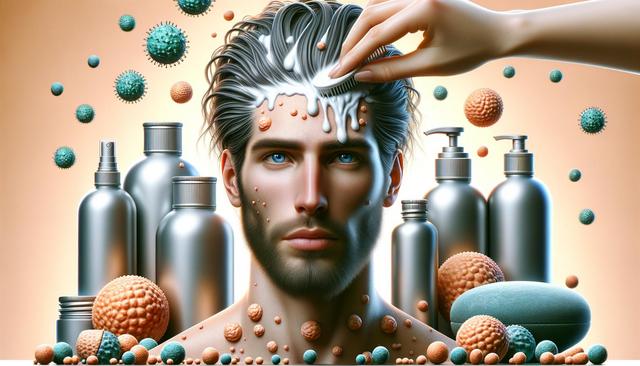What Causes Dandruff?
Dandruff is a scalp condition characterized by flaking of the skin on the scalp. While it is not contagious or serious, it can be embarrassing and sometimes difficult to treat. The causes of dandruff can vary, and understanding them is essential for choosing the right treatment strategy. Common causes include:
- Dry skin, particularly during colder months
- Oily skin and a condition called seborrheic dermatitis
- Insufficient shampooing, which can lead to oil and skin cell buildup
- Fungal infections, specifically by a yeast-like fungus known as Malassezia
- Reactions to hair care products, often referred to as contact dermatitis
Identifying the root cause of dandruff helps tailor the treatment to individual needs, increasing the likelihood of success. For example, if a fungal infection is the trigger, antifungal ingredients may be necessary. If dry skin is the culprit, moisturizing solutions might work best.
Over-the-Counter Treatments
For many individuals, over-the-counter (OTC) shampoos and treatments provide noticeable relief. These products often contain active ingredients designed to reduce flaking, control oil production, and relieve scalp irritation. Common ingredients include:
- Zinc pyrithione – helps control yeast and bacteria on the scalp
- Salicylic acid – promotes shedding of dead skin
- Selenium sulfide – slows down skin cell turnover and reduces fungus
- Ketoconazole – a broad-spectrum antifungal agent
- Coal tar – slows the rate of skin cell death and flaking
It’s important to follow the instructions on these products carefully. Using them too frequently or not often enough can reduce their effectiveness. Additionally, rotating between different types of dandruff shampoos can sometimes help prevent resistance to active ingredients.
Home Remedies and Natural Approaches
Some people prefer natural alternatives to treat dandruff, especially if they have sensitive skin or wish to avoid chemicals. While not all home remedies are backed by strong scientific evidence, many users report positive outcomes. Popular natural options include:
- Tea tree oil – known for its antifungal and antibacterial properties
- Aloe vera – soothes the scalp and reduces inflammation
- Apple cider vinegar – restores pH balance and inhibits fungal growth
- Coconut oil – moisturizes the scalp and may reduce fungal activity
When using natural remedies, it’s important to conduct a patch test first to avoid potential allergic reactions. Also, these treatments may require consistent application over several weeks to show visible results. Natural remedies can be a complementary option alongside conventional treatments or used independently, depending on the severity of the condition.
Lifestyle and Hair Care Adjustments
In addition to direct treatments, certain lifestyle changes can contribute to managing dandruff more effectively. Maintaining a healthy scalp often requires a combination of good hygiene, stress management, and diet. Consider the following adjustments:
- Shampoo regularly, but not excessively, to maintain scalp cleanliness without stripping natural oils
- Avoid hair styling products that cause buildup or irritation
- Manage stress levels, as stress can exacerbate scalp issues
- Eat a balanced diet rich in zinc, B vitamins, and healthy fats
Adopting a consistent hair care routine tailored to your scalp type can make a significant difference. For example, those with oily scalps may benefit from more frequent washing, while individuals with dry skin might need to focus on hydration. Also, avoiding hot water when washing hair can prevent further drying of the scalp.
When to See a Dermatologist
While most cases of dandruff can be managed with OTC products and home care, some situations require professional intervention. If symptoms persist despite treatment, or if the scalp becomes red, swollen, or shows signs of infection, it’s advisable to consult a dermatologist. Other signs that professional help may be needed include:
- Severe itching or discomfort
- Thick, crusty patches on the scalp
- Hair loss associated with flaking or inflammation
- Symptoms extending to other parts of the body
Dermatologists can offer prescription treatments, including stronger antifungal shampoos, topical steroids, or medicated lotions. They may also help diagnose underlying conditions such as psoriasis or eczema, which can mimic dandruff. Early diagnosis and targeted treatment can prevent the issue from worsening and improve overall scalp health.
Conclusion: Finding the Right Dandruff Treatment Plan
Dandruff is a manageable condition, but it often requires a personalized approach to find lasting relief. Understanding the root causes, exploring both conventional and natural treatments, and making appropriate lifestyle adjustments can all contribute to healthier scalp conditions. For those who continue to struggle despite these efforts, seeking help from a dermatologist can provide access to more advanced solutions. With patience and consistency, many individuals can significantly reduce or eliminate dandruff symptoms and enjoy improved scalp comfort and confidence.


